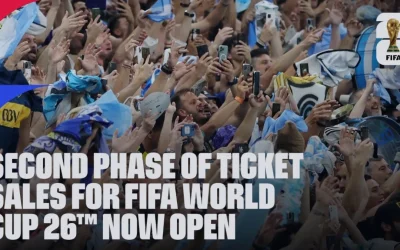The National Football League is handing out one of the largest disciplinary actions in its history, fining roughly 100 players and about two-dozen club employees for flipping their Super Bowl 59 tickets at a profit.
According to a league memo obtained by The Associated Press, players who sold their allotment of two tickets for more than face value must pay 150 percent of what they originally paid and will be barred from buying tickets to the next two Super Bowls—unless they earn their way onto the field. Club employees caught in the scheme face an even stiffer penalty: double the face value of each ticket resold.
How it happened
League compliance chief Sabrina Perel wrote that investigators traced sales to a “small number of bundlers” working with professional resellers. Those middlemen scooped up blocks of tickets from players and staff and moved them into the secondary market at mark-ups well above the league-issued price.
“This long-standing policy, incorporated into the Collective Bargaining Agreement, prohibits League or Club employees, including players, from selling NFL game tickets… for more than the ticket’s face value,” Perel reminded teams in the memo.
Perel added that the “bundlers” themselves will be subject to “increased penalties,” though details were not disclosed. The league says enhanced compliance training and tougher sanctions will be in place before Super Bowl 60 in San Francisco next February.
Face-value prices for the 2025 title game at New Orleans’ Caesars Superdome ranged from roughly $950 to $7,500, but by game week the average resale list price had ballooned to about $6,900, with premium seats often cresting five figures.
That kind of spread—and the guarantee that every active player can purchase two tickets—has long made the NFL’s employee policy a flash point. While the CBA gives players access to the league’s signature event, it strictly forbids them from cashing in on those seats at fans’ expense. This has always been a big driver of the Super Bowl ticket market – but the NFL is clearly interested in holding this ticket inventory closer to the chest – likely seeking to divert more inventory through package deals through hospitality providers like On Location.
Bottom line for fans
The league’s move won’t make Super Bowl tickets any cheaper—market forces still drive pricing once seats hit the open exchange—but it does close a lucrative backdoor for players and staff. If anything prices may actually continue to increase – given that league-controlled inventory is typically sold at the upper end of the market price compared to other ticket inventory found on open resale marketplaces.




